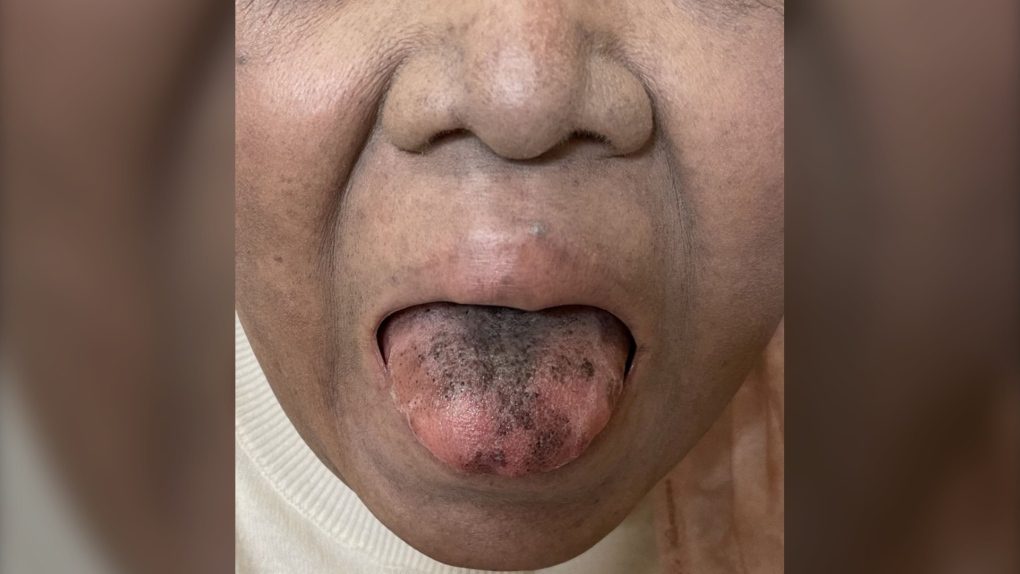Global Courant 2023-05-18 00:39:45
In an unusual case study, a woman developed a black and hairy tongue after cancer treatment.
The rare phenomenon was described in a new paper published in the peer-reviewed journal BMJ Case Reports last month.
Doctors were first made aware of the problem when a woman in her 60s presented to a healthcare facility for treatment of hepatitis B. While the doctors were assessing her, they noticed that she had gray, mottled patches on her skin that wasn’t there. when she was at the facility three months earlier.
Upon further examination, they discovered that she had a patch of black pigmentation covering much of her tongue and that the bumps on her tongue had become prominent and hair-like.
Not only did her tongue look different than usual, it also hurt, she told doctors.
A photo of the reaction shows a woman with a gray cast to her skin sticking out her tongue to show it has changed color, with darkness spreading like a blotch from the center of her tongue.
She was diagnosed with black hairy tongue (BHT), a rare but reversible condition in which the tongue bumps (papillae) become elongated and there is discoloration on the surface of the tongue.
Cause? A recent change in her cancer medication, according to the case report.
The woman has a 14-month history of postoperative chemotherapy for real cancer with liver metastases, the report said, having undergone treatment at a different hospital. But in the past four months, her chemotherapy has switched to new drugs: panitumumab with irinotecan and 5-fluorouracil.
While these are common medications associated with cancer and chemotherapy, the woman was also prescribed 100 mg of minocycline per day to prevent skin lesions that can be caused by panitumumab.
At first, doctors didn’t know what the source was because it could have been either the minocycline or the panitumumab that caused her BHT and hyperpigmentation.
Both have previously been associated with BHT, although the link between antibiotics such as minocycline is more apparent. The facial hyperpigmentation unrelated to the BHT led doctors to lean more toward minocycline, as it can lead to skin discoloration, with a 3-15 percent incidence as a side effect.
She was immediately taken off minocycline and instead received trifluridine and tipiracil hydrochloride plus bevacizumab combination therapy.
Her pigmentation and BHT had improved significantly at a check-in six weeks later, with healthier skin and only a slight darkness in the center of the tongue.
According to the Mayo clinic, BHT is a temporary and usually harmless oral condition in which the tongue takes on a “dark, hairy appearance.” Part of the problem is a buildup of dead skin cells on the papillae, which can trap bacteria that make the discoloration worse. Possible causes include changes in normal mouth bacteria after taking antibiotics, but BHT can also be caused by poor oral hygiene, overuse of mouthwashes containing irritating substances such as peroxide, tobacco use, and even eating too many soft foods that don’t allow dead skin cells in . are repelled by friction from the tongue.




